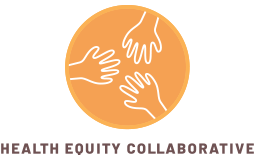17 Jun Pride Month: A Time to Promote Health Equity for LGBTQ+ Communities
As we celebrate Pride Month, it is essential to consider the persistent health inequities across LGBTQ+ populations. Even with notable advancements in LGBTQ+ visibility and rights, many people continue to encounter structural obstacles when trying to obtain fair healthcare. To promote the health and wellbeing of every person, regardless of sexual orientation or gender identity, it is imperative to recognize and address these discrepancies.
Key Health Issues Facing the LGBTQ+ Community:
Mental Health Challenges: Compared to their heterosexual counterparts LGBTQ+ people are more likely to have mental health conditions such as depression, anxiety, and suicidal thoughts. These differences can be exacerbated by societal rejection, stigma, and discrimination, which emphasizes the need for affirming and easily accessible mental health support services.
Sexual Health and HIV/AIDS: LGBTQ+ people—particularly gay and bisexual men and transgender women—continue to be disproportionately affected by HIV/AIDS despite advances in prevention and treatment. Various factors, including limited healthcare access and inequalities in sexual health education, lead to higher rates of HIV transmission and delayed diagnosis in these communities.
Access to Affirming Healthcare: Accessing inclusive, courteous, and culturally competent healthcare services can be complex for LGBTQ+ people. Disparities in preventive care, routine screenings, and access to gender-affirming care for transgender and nonbinary people can be caused by discrimination and a lack of training for healthcare providers on LGBTQ+ health problems. A survey of LGBTQIA+ adults in the United States revealed that, in 2022, “more than 1 in 5 LGBTQ+ adults reported postponing or avoiding medical care in the past year due to disrespect or discrimination by providers, including more than 1 in 3 transgender or nonbinary individuals”. Improving health outcomes and fostering trust between patients and providers depend on ensuring healthcare environments accept and affirm various identities.
Future Directions
Attaining health equity for LGBTQ+ populations calls for persistent dedication by members of the public, medical professionals, legislators, and society at large. Future initiatives should concentrate on putting laws protecting LGBTQ+ rights into effect, such as prohibiting discrimination in healthcare settings and guaranteeing access to full healthcare coverage. Reducing barriers to care also requires funding LGBTQ+ cultural competency training for healthcare professionals and establishing affirming healthcare facilities. By putting LGBTQ+ people’s health and wellbeing first and pushing for structural change, we can create a future in which everyone has the chance to flourish and lead the healthiest possible life, regardless of sexual orientation or gender identity.
As we go through Pride Month, it is essential to acknowledge the ongoing health inequalities among LGBTQ+ groups and take stock of the progress made in advancing LGBTQ+ rights and visibility. The difficulties LGBTQ+ people encounter in obtaining fair healthcare highlights the critical need for coordinated action. We can create a more inclusive and healthy future by identifying and resolving the complex issues causing these gaps.
Resources for LGBTQ+ Populations
To further support LGBTQ+ individuals in navigating these challenges, here are some valuable resources:
- The Trevor Project : Provides crisis intervention and suicide prevention services to LGBTQ+ youth.
- GLAAD: Promotes understanding, increases acceptance, and advances equality for LGBTQ+ individuals.
- Human Rights Campaign (HRC): Advocates for LGBTQ+ equality and provides resources on various issues impacting the LGBTQ+ community.
- National Center for Transgender Equality (NCTE): Advocates to change policies and society to increase understanding and acceptance of transgender people.
- Fenway Health: Offers healthcare services, research, education, and advocacy for the LGBTQ+ community.
- PFLAG: Provides support, education, and advocacy for LGBTQ+ people, their families, and allies.
- Centers for Disease Control and Prevention (CDC) – LGBT Health: Offers information and resources on health issues affecting LGBTQ+ populations.
- GLMA – Health Professionals Advancing LGBTQ Equality: Provides a directory of LGBTQ+ friendly healthcare providers.


